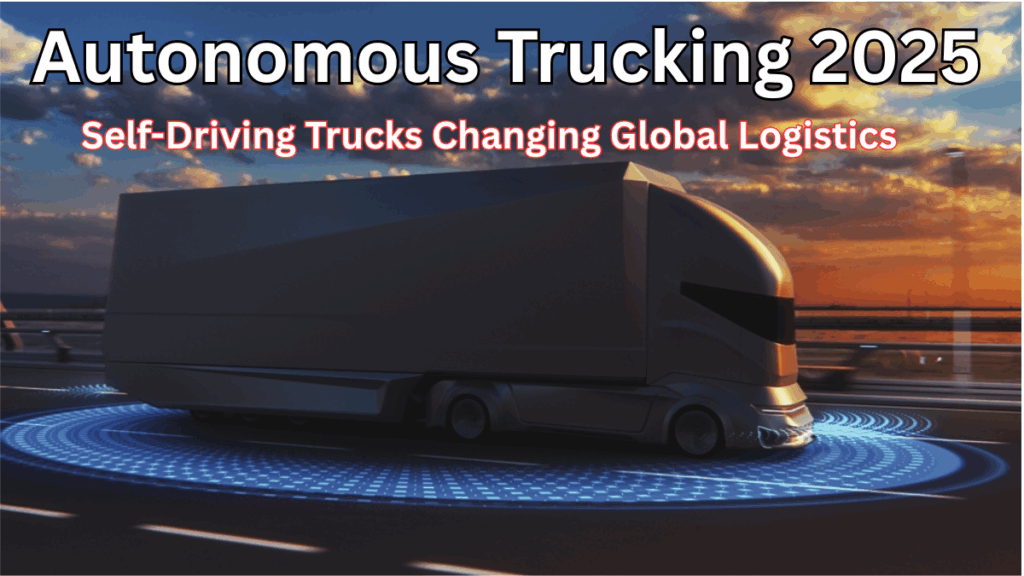The Autonomous Trucking Industry 2025 is no longer a futuristic dream. With rapid technological advancements, self-driving trucks are transforming the way goods are transported across continents. This shift is bringing major changes to global logistics operations.

Table of Contents
The Rise of Autonomous Trucking: What’s Driving the Change?
The Autonomous Trucking Industry 2025 is growing due to several key factors:
-
Driver shortages in the freight sector pushing demand for automation
-
Safety improvements that aim to reduce accidents caused by human error
-
Cost savings from fuel-efficient driving and reduced labor costs
-
Environmental benefits as AI systems optimize fuel usage and lower emissions
Key Benefits of Self-Driving Trucks for Logistics
Autonomous trucks offer significant advantages for the global logistics industry. Here’s how:
Benefit |
Impact on Logistics |
|---|---|
24/7 operations |
Goods can move continuously without driver rest stops |
Fuel efficiency |
AI-managed driving lowers fuel consumption |
Enhanced safety |
Fewer accidents and disruptions on the road |
Faster deliveries |
Optimized routes shorten transit times |
Predictable costs |
Stable expenses for labor and maintenance |
Major Players in the Autonomous Trucking Industry 2025
Some of the big names leading the development of self-driving trucks include:
-
Tesla with its semi-autonomous electric trucks
-
Waymo Via, Google’s logistics-focused self-driving division
-
Embark Trucks, specializing in autonomous long-haul solutions
-
Aurora Innovation, creating scalable autonomous systems for fleets
Challenges on the Road Ahead
Despite the impressive growth of the Autonomous Trucking Industry 2025, challenges remain:
-
Regulatory differences between countries complicate large-scale deployment
-
Public perception and trust still need to catch up with technology
-
AI system refinement is essential to handle complex, real-world driving conditions
The Future of Logistics With Autonomous Trucks
Looking ahead to 2025 and beyond, self-driving trucks are expected to:
-
Become a significant part of long-distance freight movement, especially in North America and Europe
-
Strengthen supply chain resilience and efficiency
-
Inspire further innovation in smart warehouses and automated delivery systems
FAQs
Q1: How will autonomous trucking affect jobs in logistics?
Automation may reduce some traditional driving roles, but it will also create new jobs in areas like fleet supervision, AI monitoring, and technical support.
Q2: Are self-driving trucks already on the road?
Yes. Several companies are testing or running self-driving trucks on selected routes, particularly in the US and China.
Q3: What safety features do autonomous trucks have?
They include advanced sensors, cameras, radar systems, AI decision-making, and backup safety protocols to prevent accidents.
Q4: Will autonomous trucks completely replace human drivers?
Not in the short term. A hybrid model combining human oversight and automation will likely dominate the logistics industry in the near future.
Click here to learn more
